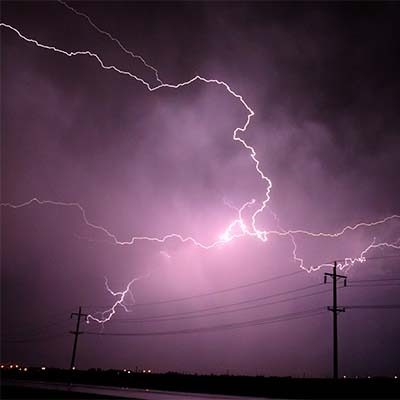Regardless of where you live, you’ll probably experience an occasional storm.
While most storms are minor and pose little or no risk to your property, others are more severe. If a severe storm makes its away across your home, it could damage your heating, ventilation and cooling (HVAC) system.
Unfortunately, you can’t control the direction in which storms travel, but you can take precautions to safeguard your HVAC system from storm-related damage.
Trim Branches
You should trim any tree branches that hang over your condenser unit.
The condenser unit, of course, contains two essential HVAC components: the condenser coil and the compressor. If either of these components are damaged by a fallen tree branch, your HVAC system may fail.
Therefore, you should trim any large or otherwise problematic tree branches over your condenser unit.
Install Pad Anchors
Pad anchors are particularly useful for protecting condenser units from severe weather, including hurricanes and tornadoes.
What are pad anchors exactly?
They are fasteners that, when installed, secure the condenser unit to an underlying pad. The AC condenser doesn’t just sit on top of the pad. Rather, it’s secured to the bolt using anchors, which hold it in place.
Even during gale-force winds, your AC condenser shouldn’t budge if it’s anchored down to the pad.
Cover the Condenser Unit
Another tip to protect your HVAC system from storm damage is to cover the condenser unit.
Storms, of course, can blow debris into the condenser unit. If the condenser coil becomes clogged with too much debris, the cooling performance of your home’s AC will suffer.
With a clogged condenser coil, your AC system won’t be able to effectively release heat.
So, cover your condenser unit with a large tarp or specialized cover before the storm hits.
Turn Off the Circuit Breaker
If a severe storm is on the horizon, you may want to turn off the circuit breaker to which your HVAC system is connected.
Contrary to what many homeowners believe, circuit breakers do not protect against power surges. They only protect against overcurrent – a condition in which the connected devices or appliances draw too much power.
If a nearby lightning strike causes a power surge, it could damage your HVAC system and other connected devices or appliances.
The only way to ensure your HVAC system is protected from power surges is to temporarily turn off the circuit breaker to which it’s connected until the storm has passed.
If you are experiencing a problem with your air conditioning or heating call us at 512-336-1431 to schedule an appointment. We’ll be glad to come out and take a look at the issue.
1431-183 A/C & Heating proudly serves Round Rock, Georgetown, Cedar Park, Pflugerville, Leander, Liberty Hill, and North Austin.

